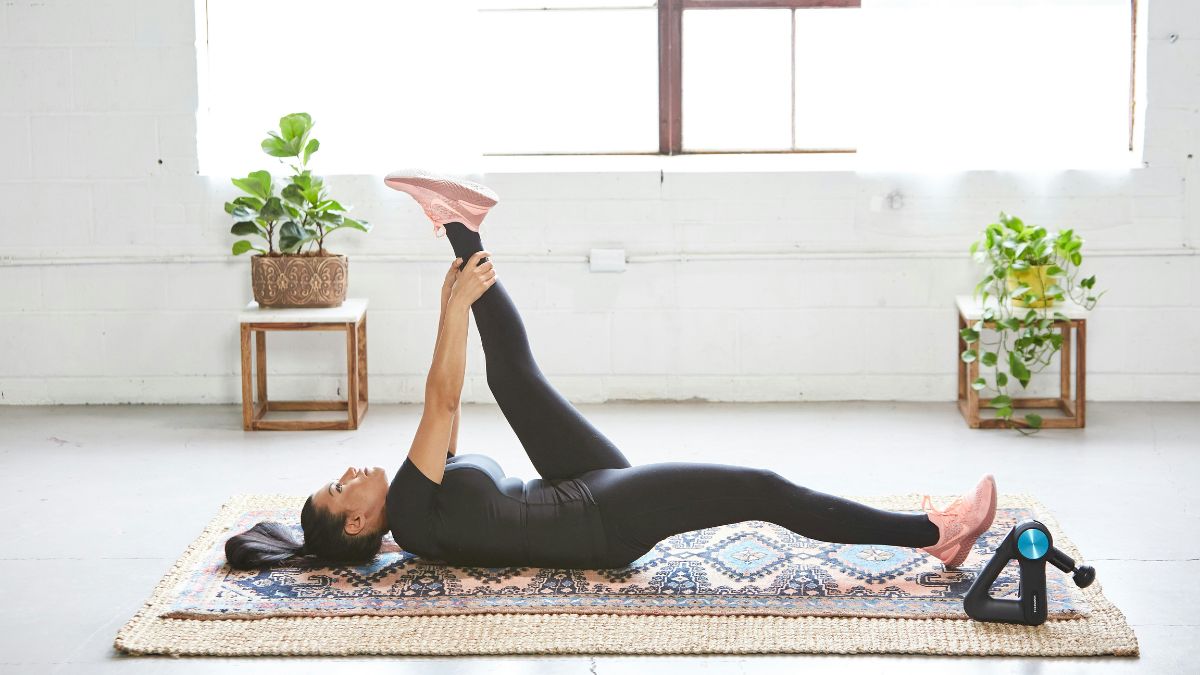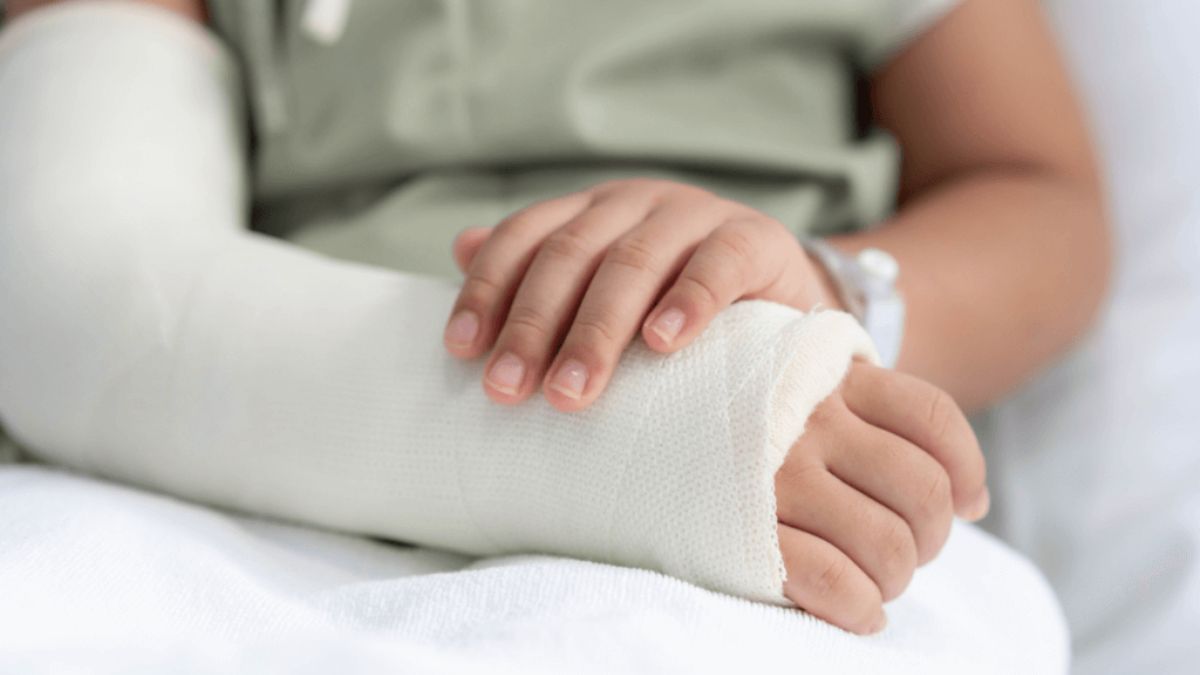HEALTH
Recuperbate: The Ultimate Guide to Recovery and Wellness

Welcome to the world of Recuperbate, where recovery and wellness take centre stage. In our fast-paced lives, it’s easy to overlook the importance of taking a step back and nurturing ourselves. Whether you’re an athlete pushing your limits or someone navigating daily stressors, understanding how to prioritize recovery can significantly enhance your overall well-being.
Imagine feeling energized, focused, and ready to tackle whatever comes your way. This guide will walk you through practical techniques for physical recovery, mental health practices that promote optimal wellness, nutritional tips for fueling your body right, and much more. It’s time to embrace a holistic approach that supports not just surviving but thriving.
Are you ready to unlock the secrets of effective recovery? Let’s dive into this journey toward better health together!
What is Recovery and Wellness?
Recovery and wellness are intertwined concepts that emphasize the importance of holistic health. Recovery refers to the process of healing, whether from physical exertion or emotional stress. It’s about allowing your body and mind to rejuvenate after challenges.
Wellness goes beyond the mere absence of illness; it encompasses a state of complete physical, mental, and social well-being. This means actively engaging in behaviours that promote long-term health.
Both recovery and wellness focus on self-care practices tailored to individual needs. They encourage mindfulness, balance, and intentionality in everyday life choices.
Understanding these principles equips you with the knowledge to cultivate a healthier lifestyle—a journey where small changes can lead to significant improvements in quality of life.
The Importance of Prioritizing Recovery and Wellness
In today’s fast-paced world, recovery and wellness often take a backseat. People push through exhaustion in pursuit of goals, neglecting their well-being. This approach can lead to burnout and diminished performance.
Prioritizing recovery isn’t just about physical rest; it fuels productivity and creativity. When your body is refreshed, so is your mind. You make better decisions and engage more fully with life’s experiences.
Furthermore, focusing on wellness fosters resilience against stressors. It builds mental fortitude that helps you navigate challenges effectively. By investing time in self-care practices like meditation or light exercise, you cultivate a healthier mindset.
Ignoring these essential aspects can result in long-term health issues. Embracing a holistic view of wellness ensures longevity both personally and professionally while enhancing overall quality of life.
Physical Recovery Techniques: Stretching, Foam Rolling, and Massage
Physical recovery is essential for anyone engaged in regular exercise or intense physical activity. Stretching plays a crucial role in enhancing flexibility and preventing injuries. Incorporating dynamic stretches before workouts can prepare your muscles, while static stretching afterwards helps to release tension.
Foam rolling is another powerful technique that targets muscle tightness and knots. This self-myofascial release method improves blood flow and promotes faster recovery. Rolling out sore areas can feel uncomfortable but provides significant relief over time.
Massage therapy complements these techniques beautifully. It not only alleviates muscle soreness but also reduces stress levels. Regular massages enhance circulation, aiding the body’s natural healing processes.
These methods work harmoniously together, creating a robust foundation for your recovery routine. Embracing them can significantly improve your overall wellness journey as you continue to push your limits.
Mental Health Practices for Optimal Wellness
Mental health is a cornerstone of overall wellness. It influences how we think, feel, and act. Prioritizing mental health practices can lead to profound changes in our quality of life.
Mindfulness meditation is one effective technique. Spending just a few minutes each day focused on the present moment helps reduce anxiety and stress. Breathing exercises also play a crucial role; they ground you when thoughts spiral.
Journaling serves as an emotional outlet. Writing down feelings clarifies your mind and provides insights into patterns that may affect well-being.
Engaging in creative activities like painting or playing music fosters self-expression and relaxation. These hobbies ignite joy while acting as therapeutic outlets.
Don’t underestimate the power of social connections. Talking with friends or family about your experiences creates a support network that enhances resilience during tough times.
Nutrition for Recovery and Wellness
Nutrition plays a pivotal role in recovery and wellness. The right foods can aid healing, boost energy levels, and enhance overall performance.
Incorporating whole foods into your diet is fundamental. Fresh fruits, vegetables, lean proteins, and healthy fats provide essential nutrients that promote muscle repair and reduce inflammation.
Hydration cannot be overlooked either. Water helps transport nutrients throughout the body while flushing out toxins. A well-hydrated body functions optimally during workouts and daily activities.
Consider timing your meals around physical activity as well. Consuming carbohydrates before exercise fuels energy reserves, while protein intake post-workout supports muscle synthesis.
Don’t shy away from experimenting with superfoods like quinoa or spirulina for an extra nutrient boost. They pack powerful benefits without overwhelming your digestive system.
Listening to your body’s cravings can also guide you toward what it needs most at any given time. Trusting yourself fosters a more intuitive approach to nutrition for recovery and wellness.
Supplementing Your Recovery Regimen
Supplementing your recovery regimen can be a game-changer. It’s not just about what you eat; it’s also about enhancing your body’s natural healing processes.
Consider adding vitamins and minerals that support muscle repair and energy production. Magnesium, for instance, helps with muscle relaxation after intense workouts. Omega-3 fatty acids are known for their anti-inflammatory properties, which can speed up recovery.
Collagen supplements have gained popularity due to their potential benefits for joint health. They may help improve flexibility and reduce soreness after exercise.
Looking into adaptogens like ashwagandha or rhodiola can bolster your body’s resilience against stress. These herbs may enhance both physical performance and mental clarity.
Always consult with a healthcare professional before starting any new supplement routine to ensure it aligns with your individual needs and goals. Tailoring your approach allows you to maximize the benefits of supplementation in your recovery journey.
Making Time for Self-Care and Rest
In our busy lives, carving out time for self-care often feels like a luxury. Yet, it’s essential for true wellness. Prioritizing moments of rest can rejuvenate both body and mind.
Consider small rituals that bring you joy. Whether it’s sipping tea while reading a book or taking a leisurely walk in nature, these activities recharge your spirit.
Create boundaries around your schedule. Dedicating even 15 minutes daily to unwind can make all the difference. Use this time to breathe deeply or simply enjoy silence.
Don’t feel guilty about prioritizing yourself. Self-care is not selfish; it enables you to give more fully to others when needed.
Remember that rest isn’t just about sleep—it’s also about engaging in fulfilling hobbies or exploring creative outlets. Embrace the art of doing nothing some days; it’s vital for your overall well-being and recovery journey.
The Role of Community in Recovering and Maintaining Wellness
Community plays a vital role in the journey toward recovery and wellness. Connecting with others fosters support, accountability, and motivation. When you share your experiences and challenges, it creates a sense of belonging.
Engaging with like-minded individuals who understand your struggles can be incredibly healing. Whether it’s through group therapy sessions or local fitness classes, these connections encourage personal growth.
Communities often provide resources that enhance your wellness journey. Workshops on mental health strategies or nutrition seminars are just a few examples of what may be available nearby.
Additionally, celebrating milestones together builds confidence and reinforces positive habits. The encouragement from peers amplifies your efforts.
Don’t underestimate the power of shared experiences; they can truly transform how you approach recovery. Embracing the community opens doors to new perspectives and practices essential for maintaining long-term wellness.
Striking a Balance: Balancing Work, Fitness, and Rest
Striking a balance between work, fitness, and rest is crucial for achieving optimal recovery and wellness. Life often feels like a juggling act. We have our careers demanding attention, fitness goals pushing us to excel, and the vital need for downtime that we can’t ignore.
First, set boundaries in your work life. Establishing clear start and end times can help foster productivity while ensuring you don’t become overwhelmed. Consider implementing techniques like time blocking to manage tasks efficiently.
Next comes fitness—an essential component of overall health but one that requires careful planning to fit into your busy schedule. Whether it’s quick high-intensity workouts or yoga sessions at home, find activities that resonate with you without feeling like another obligation.
Rest should never be an afterthought; it’s as important as exercise itself. Listen to your body’s cues. Schedule regular breaks throughout the day and prioritize quality sleep each night—you’ll notice how this rejuvenates both body and mind.
Remember that flexibility is key when balancing these elements of life. Some days will lean more towards work while others may focus on self-care or fitness routines. Adaptability ensures you’re not only surviving but thriving in all areas of your life.
By valuing each aspect—work commitments, physical activity, and necessary rest—you pave the way toward sustainable recovery practices through tools like Recuperbate that support long-term wellness strategies.
HEALTH
Why Martial Arts Sydney Is More Than Just Self-Defence

Do you want to know what makes martial arts different from other physical activities? When you train in martial arts Sydney, you learn skills that help you defend yourself while building mental strength development in practical ways that improve your daily life.
What Martial Arts Classes Really Teach You
Many people join martial arts, thinking they’ll only learn how to fight. The reality? Martial Arts training reshapes your body and mind in ways regular gym workouts don’t.
How You Build Toughness Through Training
Martial arts classes put you in challenging situations on purpose. You learn to handle pressure, solve problems, and develop grit that serves you everywhere.
Regularly facing difficulties with supportive classmates makes you calmer during stressful moments. This calm helps with work deadlines, traffic jams, and family emergencies alike.
Can Martial Arts Actually Improve Your Concentration?
Our attention gets pulled in countless directions every day. Martial arts Sydney training counteracts this by requiring total focus during practice. You don’t just pay attention briefly – you train your mind to lock in completely.
Many parents are told by teachers since their child started classes, they sit still and listen better in class. The clear instructions and immediate feedback in martial arts make focus a trainable skill, not just something you either have or don’t.
Why You’ll Make Real Friends
Academies that teach martial arts Sydney create communities, unlike typical gyms. People who sweat, struggle, and succeed together form genuine bonds.
Your training partners quickly become people who understand your challenges both in and out of class. Many students initially join for fitness but stay for years because of these connections – something particularly valuable in a busy city where meaningful interaction often feels rare.
Physical Changes You Might Not Expect
Regular exercise makes anyone fitter, but training in martial arts Sydney develops specific physical abilities most workout routines miss entirely.
How Your Strength Changes
Unlike machines that isolate muscles, martial arts movements engage your entire body. You develop practical strength that helps with everything from carrying groceries to playing with kids.
Furthermore, martial arts classes teach you to use tension only when needed while relaxing elsewhere. This efficiency helps office workers with chronic tension and weekend athletes alike.
Why Your Coordination Improves
Through repeated practice of precise movements, you rewire your brain’s movement patterns. This improved body awareness leads to better balance, posture, and overall movement quality.
Adults who always considered themselves “uncoordinated” often discover this quality isn’t fixed – it can be developed. The changes happen gradually but add up to noticeable improvements in how comfortably you move through daily life.
How To Choose A Good Martial Arts Sydney Academy
With dozens of options across Sydney, how do you find a school that teaches these deeper skills rather than just physical techniques?
Look at how instructors interact with students. Do they explain the “why” behind movements? Do they address the mental aspects of training? Good schools emphasize character alongside technique.
Check if classes include students of different abilities training together respectfully. The best academies for martial arts Sydney maintain high standards while adjusting teaching methods for individual needs.
Why Start Martial Arts Now
Martial arts training gives you practical self-defence skills while developing mental toughness, focus, and community connections. These benefits help in every area of your life.
Are you ready to see these changes yourself? Visit a local martial arts Sydney academy this week. Watch a class. Talk to students. Find training that fits your goals and schedule – your future self will thank you for taking this important first step.
HEALTH
Skincare for Sensitive Skin: Gentle Solutions for a Healthy, Glowing Complexion

Does your face turn bright red with new creams? Do you experience burning sensations, itchy patches, and that horrible tight feeling? These are classic signs of sensitive skin. Finding proper skincare for sensitive skin can change everything and transform uncomfortable, reactive skin into a calm, balanced complexion.
What Exactly Is Sensitive Skin?
Sensitive skin isn’t just being fussy about products. It’s a real condition. Dermatologists explain that sensitive skin reacts strongly because its protective barrier doesn’t function properly. This leads to inflammation, redness, dryness, and irritation. Cold weather, pollution, sunshine, and ingredients in regular skincare products can all trigger reactions.
The warning signs include:
- Stinging sensations after washing
- Redness that doesn’t fade, even hours later
- Persistent dry patches despite regular moisturising
- Areas that feel perpetually itchy and tight
- Visible broken capillaries on cheeks or nose
Why Most Shop-Bought Products Make Things Worse
Many people fall into the common trap of spending hundreds of dollars on fancy brands, where each one makes their skin more upset, as mainstream products often contain ingredients that sensitive skin hates:
- Various alcohols (particularly denatured)
- Synthetic fragrances (even when labelled “natural scents”)
- Chemical preservatives with complex names
- Exfoliating acids that prove too harsh
- Foaming agents like sodium lauryl sulphate
Consistent skincare for sensitive skin provides the stability these complexions desperately need.
Creating a Gentle Skincare Routine That Actually Works
Years of trial and error show that simplicity helps sensitive skin the most. You don’t need fifteen products – you need the right ones. Effective skincare for sensitive skin focuses on healing and protecting rather than harsh treatments that promise quick results.
Bin Your Harsh Cleanser
Your face wash matters enormously. Many cleansers strip the skin barrier daily. Better options include:
- pH-balanced formulas (around 5.5)
- Products without bubbles or foam
- Formulations with fewer than 10 ingredients
- Cream or oil textures rather than gel
Sort Out Your Moisture Barrier
Repairing a damaged skin barrier becomes essential for sensitive skin. Australian jojoba oil offers a remarkable solution. Unlike other oils, jojoba closely resembles human skin’s natural sebum. It’s actually a liquid wax ester that delivers:
- Natural vitamins A, D and E that nourish depleted skin
- Omega 6 and 9 fatty acids that strengthen the barrier
- Powerful antioxidants that fight environmental damage
- Deep hydration without clogging pores
Adding a few drops of jojoba to a plain moisturiser can transform skin health within weeks.
Soothing Skincare Ingredients That Calm Reactive Skin
Not all botanicals work for sensitive types (essential oils often cause problems), but these gems consistently help calm irritated skin:
- Australian jojoba as a non-negotiable staple
- Centella Asiatica extract (cica) for reducing redness
- Pure aloe vera for immediate soothing
- Colloidal oatmeal for intense calming
- Hyaluronic acid for moisture without irritation
- Niacinamide at 5% concentration for barrier repair
Finding the Best Products for Sensitive Skin
Labels can mislead. Look beyond marketing claims for:
- “Hypoallergenic” products (though manufacturers use this term freely)
- Truly fragrance-free options (not just masked scents)
- Ingredient lists where jojoba appears high up
- Items specifically created for eczema-prone or reactive skin
- Packaging that minimises contamination and oxidation
Your Sensitive Skin Deserves Better
Skincare for sensitive skin requires detective work because triggers differ from person to person. Some can’t tolerate vitamin C, while others use it without issues. But jojoba-based products consistently emerge as sensitive skin saviours.
Fed up with red, irritated skin? Start fresh with a stripped-back routine focusing on gentle cleansing and barrier repair with jojoba oil. Your mirror will soon reflect what you’ve wanted all along – calm, comfortable skin that feels like yours again.
HEALTH
Essential Considerations After a Personal Injury Incident

What to Do Immediately After an Incident
A personal injury incident can strike unexpectedly, leaving you feeling disoriented and vulnerable. In these crucial moments, your priority should be ensuring everyone’s safety, including yours. Begin by assessing the environment for hazards such as traffic, unstable structures, or exposed electrical elements. If necessary, quickly move to a safe location or, if incapacitated, signal for help.
Once safety has been established, it is essential to maintain a sense of calm. While this is challenging, keeping a clear mindset enables sound decisions. You may already consider the potential legal ramifications and wonder about personal injury law during this time. This understanding is crucial as it informs how you handle the initial stages after an injury.
Understanding Your Rights
Understanding your rights following a personal injury can be a source of empowerment. Individuals affected by such incidents frequently encounter many decisions, ranging from medical care to possible legal recourse. Typically, victims have the right to seek compensation for their injuries, which may encompass physical damage, emotional suffering, and financial setbacks, including lost wages or medical expenses. Engaging a personal injury lawyer can facilitate obtaining the compensation you are entitled to, as they can assist in navigating the legal complexities on your behalf. Having a well-informed strategy can significantly impact the outcome of any legal matter. To enhance your understanding, explore comprehensive resources that explain your legal rights as an injury victim.
Gathering Necessary Evidence
The strength of your compensation claim hinges significantly on the evidence gathered at the scene. Documenting the scene might seem challenging in the chaotic aftermath of an accident, but it is a vital step. Take clear photographs from multiple angles, capturing details like road conditions or visible injuries.
Should witnesses be available, collect their contact details and courteously request their event description. Written statements or voice recordings are invaluable. Secure any video footage from nearby cameras, such as traffic or security cameras, which could provide an unbiased account of the incident.
Seeking Medical Attention
Medical attention should be sought immediately after ensuring safety, even if injuries appear to be minor. Prompt medical evaluations are necessary for your health and serve as critical evidence. Minor aches or bruises indicate underlying injuries that could have been left unchecked.
A detailed medical report is an official record of your injuries and is often crucial when filing compensation claims. For instance, understanding the importance of medical procedures like X-rays can better illustrate how injuries are documented and assessed. Skipping this step can lead to complications in your recovery and legal proceedings.
Reporting the Incident
Once immediate concerns are managed, you should report the incident to the authorities. This includes contacting the police to file an official report. This report creates an official and unbiased account of what transpired, which lawyers and insurance companies often examine closely.
Be honest and concise in your account to the authorities. Provide them with the collected evidence, but refrain from speculating about fault or liability, as emotions and stress can colour your perspective.
Consulting a Professional
Personal injury cases often present complexities and involve nuanced details requiring expert guidance. Engaging a personal injury attorney can offer valuable clarity and assistance. A lawyer represents your interests and expertlymanoeuvress through the intricacies of the legal system on your behalf, guaranteeing that you obtain the compensation to which you are entitled.
Prepare for these consultations by gathering all relevant documents. Questions to discuss include your case’s strengths and the lawyer’s experience with similar claims. This relationship will be instrumental, so choose a lawyer whose communication style you find agreeable and who clearly outlines their strategy and expectations.
Navigating Insurance Claims
Filing an insurance claim demands patience and precision. Write down all correspondence with the insurance company and keep detailed records of every exchange. Respond promptly to communications and provide all requested documentation, including medical reports and evidence collected at the scene.
Insurance companies aim to minimize payouts, so be prepared to advocate for yourself firmly. Proactively engaging in the process with a straightforward narrative supported by evidence builds a compelling case for a fair settlement. Avoid rushing the process; thoroughness now can prevent complications later.
Staying Informed and Educated
Finally, education is an ongoing process that bolsters your readiness for personal injury incidents. Continuously familiarize yourself with personal injury law as it evolves with new precedents and legislative changes. This knowledge assists you in the immediate aftermath of an incident and prepares you for potential future scenarios.
Explore readings from reputable legal sources, attend workshops, or consult experts to enhance your understanding. Being well-informed isn’t just about being prepared—it’s about staying empowered in all legal and personal protection aspects.
-

 TECHNOLOGY7 months ago
TECHNOLOGY7 months agoAbout Technology From Axiumtechnet: Exploring the Beautiful Future
-

 TOPIC6 months ago
TOPIC6 months agoInvitation Printing: How to Create Perfect Invitations for Any Occasion
-

 TECHNOLOGY6 months ago
TECHNOLOGY6 months agoThe Rise of Hqpotner: Exploring Its Impact on the Blogging Community
-

 TECHNOLOGY7 months ago
TECHNOLOGY7 months agoAlpha Technologies Fxm350 Snmp Oid: Comprehensive Overview
-

 BUSINESS7 months ago
BUSINESS7 months agoGoogle Business Profile Kgmid Extractor: A Deep Dive
-

 HEALTH7 months ago
HEALTH7 months agoHarriet Goldfischer Providence Health: Ultimate Guide
-

 BUSINESS6 months ago
BUSINESS6 months ago36dview Photography Business Info: Your Ultimate Guide
-

 BUSINESS7 months ago
BUSINESS7 months agoDining Delights: 200 E Business Hwy 23 Walsco Tx
